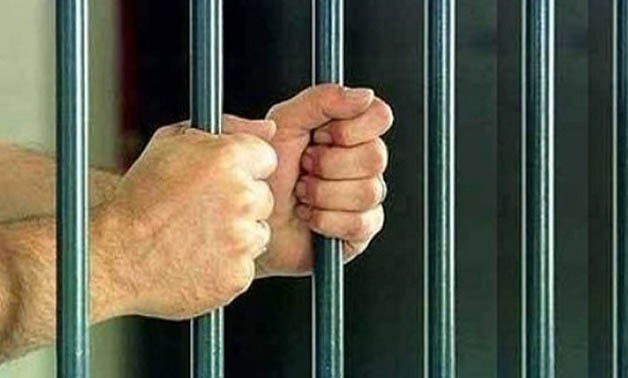
Detention of accused - Creative Commons Via Wikimedia
CAIRO – 10 July 2017: Military Prosecution renewed the imprisonment of ten defendants affiliated with the Islamic State on Sunday for an additional 45 days pending investigations, after their proven involvement in a number of recent terror attacks in the country.
The prosecution’s order came after receiving documents from the Supreme State Security investigation that affirmed involvement of the defendants in recent terror attacks.
Some of the defendants were involved in plotting the attacks that took place against Abbasseya, Alexandria, and Tanta churches. The investigation also included information on the Wadi Gedid checkpoint terror attack.
Beginning with the St. Peter’s Church incident, the investigation affirmed that Mahmoud Shafiq was the perpetrator of that bombing that left 25 killed and 49 injured.
One day after the bombing, during the official funeral for the church victims, President Abdel Fattah al-Sisi said that a 22-year-old suicide bomber named Mahmoud Shafiq was behind the attack.
According to the investigation, Shafiq was selected to be the suicide bomb attacker by the leader of the organization, Mohab Mustafa al-Sayed Kassem.
Shafiq moved from North Sinai, where he was trained, with his colleague Mahmoud Hassan Mubarak to Cairo and resided in their colleague Ramy Abdel Hameed’s apartment located in the Zaitoun district.
On December 8, two of the defendants, Amr Abbas and Waleed Abul Majd, received three explosive vests from another two defendants Mohamed Ezzat and Hossam Badawy.
Abbas and Abul Majd delivered the vest to Shafiq so he could implement the terror attack. Meanwhile, on December 9 and 10, Ezzat and Badawy monitored the vicinity of the church.
Early on December 11, the bomber [Shafiq] wore an explosive vest and entered the church after he was delivered by Abbas and Abul Majd, to the church's headquarters.
The prosecution conducted a photographic inspection of Abdul Hamed’s apartment and seized an explosive vest, as the one used in the attack, clothes and biological finger prints. After a DNA examination, all items found were an identical match to the DNA of Shafiq’s remains found by the police during the church inspection.
Al-Naqab check point.
Regarding the Wadi Gedid checkpoint terror attack, investigations revealed that the attack was executed by Ezzat and Abbas.
Prior to the attack, both defendants arrived at the checkpoint, where they monitored the entrance and exit points of the road, the areas surrounding it, as well as the number of security personnel present at the checkpoint.
Later, 13 terrorists, divided into four groups, arrived at the checkpoint in four-wheel-drive cars carrying heavy machine guns, explosive devices and rocket-propelled grenades, according to the investigations.
This incident occurred on January 16, when gunmen arrived to al-Naqab checkpoint in South West Cairo, killing eight security forces and injuring three others.
Alexandria and Tanta Churches.
Moreover, the investigations confirmed that Abbas and Ezzat were the leaders who assigned Mamdouh Amin Baghdadi to attack St. George's church of Tanta in Gharbiya governorate, leaving 28 killed and over 70 injured. Early on April 9, he wore an explosive vest, and was headed to the nearby church with another defendant named Hossam Nabil.
The investigations also stated that at the time of the Tanta explosions, Abbas and Ezzat assigned Mahmoud Hassan Mubarak to head to the Alexandria church to commit a suicide bombing.
Baghdadi was among the gunmen of the al-Naqab attack, meanwhile, Mubarak was involved in both the December and the al-Naqab checkpoint attacks, the statement noted.
The ten defendants will be punished in accordance to the Emergency Law that has been recently approved by the state, in wake of an impending state of Emergency.
The state of emergency has been declared throughout the country in April to impose security measures for fighting terrorism. This law allows referring terrorists on suspicion to military courts for fast litigation.

Comments
Leave a Comment